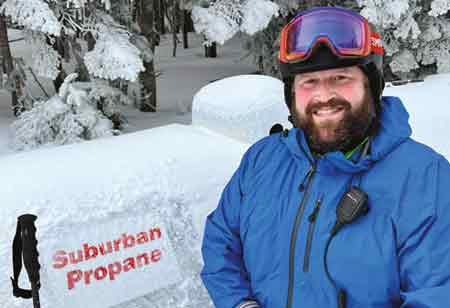M. Douglas Dagan has been the Vice President of Strategic Initiatives for Renewable Energy at Suburban Propane since March 2021. Before joining this company, he was a senior associate at the law firm of Bevan, Mosca and Giuditta, P.C. and also worked as the Director of Public Affairs and Government Relations at this firm’s affiliation. He practised law and educated companies on developing renewable energy projects, advocated for energy policies, and supported climate change strategies and initiatives.
Is there a particular trend or industry challenge related to Green Tech that you feel is most pertinent to share with our audience?
I am happy to share about the journey of my business transformation and the role I have played in Suburban Propane. I brought a transition from traditional energy to renewable operations where renewable propane, renewable natural gas and hydrogen are the major components. Also, we invest in multiple low carbon technologies.
Can you elaborate on the transition to a more renewable solution, or has any recent development prompted the shift?
To understand the transformation, I must first give an overview of my professional background in environmental advocacy and renewable energy, which has included various roles in different organizations for the past 25 years. This expertise helped me enhance my understanding and perspective of renewable energy from scientific and policy viewpoints, resulting in the success of the transition into renewables.
Suburban Propane has a 95-year legacy, and transformation is the key to preserving our prolonged legacy for the next 95 years. We have achieved a vast footprint spanning 42 states with huge customer support, which helped us discover that the environment is highly dominated by renewable energy, driving us to embark on this journey.
We aim to transform the green tech industry by focusing on hydrogen, renewable propane, and renewable natural gas, embracing low carbon intensity technologies. As propane leaders, we are serving our customers and communities to pave the way for a sustainable tomorrow
Our renewable platform is based on three major components: renewable propane, renewable natural gas, and hydrogen. We have been well-positioned to operate these renewable resources by harnessing existing infrastructure and our core competencies. Every gallon of renewable propane we sell is a gallon of traditional propane that has been displaced. We also produce renewable dimethyl ether (DME), a molecule similar to propane. This DME can be blended with traditional propane to reduce the carbon intensity of the renewable propane. Biogas, a renewable energy source produced from organic waste, helps generate renewable natural gas.
Our team puts extra effort into exploring the production and distribution of hydrogen by handling propane and other gases. We aim to maximize renewable propane and DME utilization to produce low-carbon intensity hydrogen for multiple applications, like transportation and industrial operations.
Suburban Propane has built a subsidiary company known as Suburban Renewable Energy to become the driving force of renewable energy initiatives. This subsidiary ensures continued relevance in the energy transition era and its commitment towards sustainability and the well-being of employees and communities across the United States.
Is there any industry misconception about what the green transition would entail and what the process of socially responsible growth looks like?
The green tech industry is comparatively slower in adopting the transition of renewable energy than other industries. In this case, Suburban Propane has become the leader in the propane industry. Although the industry is becoming aware of the importance of energy transition, the propane customer has more contact with their energy provider than any other electric utility company. Very few people have the idea of managing wire at the natural gas utility dispatching the natural gas on the pipeline. However, customers are very well connected with propane dealers who provide energy services and introduce lower carbon products. Over the last 18 to 24 months, industry players have become aware of the importance of energy transition. Nevertheless, the transition is a gradual process for the propane industry, and it expects to achieve more in the future.
What can we expect in the next 12 to 18 months in terms of new developments and in Green Tech?
The future landscape of the green tech industry will be vastly different from the past. I have worked as a judge and a mentor for Clean Tech Open and seen emerging companies’ desire to pursue novel renewable energy approaches. As propane leaders, we are investing in these startups, encouraging and helping them contribute toward a more sustainable and equitable future. We aim to continue to invest in low carbon intensity propane, clean hydrogen and renewable natural gas. More importantly, the creation of hydrogen hubs by the Department of Energy (DOE) and the constant financial support to build a new hydrogen economy anticipates a future over the next 18 to 24 months.
The Hydrogen Hub Awards and the various projects happening in the space are transforming hydrogen from being a fertilizer of oil and gas production to a more niche gaseous provider of distributed energy. This transition will result in a truck or forklift refuelling, tractor-trailer, power backup, or to decarbonize the power grid by merely mixing in low carbon intensity hydrogen with renewable natural gas to produce electricity. So, it is very uncertain whether the changes will take place in the coming future because the transition that took place today was not expected two years ago. Our main focus will be on three components: hydrogen, renewable natural gas, and renewable propane. We will also strengthen our customer base through additional renewable energy offerings. Although we might expand the renewable platform beyond these three elements in the future, today, the goal is to lead the industry and the energy transition with these three pieces as they drive the maximum value for our customers, company and unit holders.


